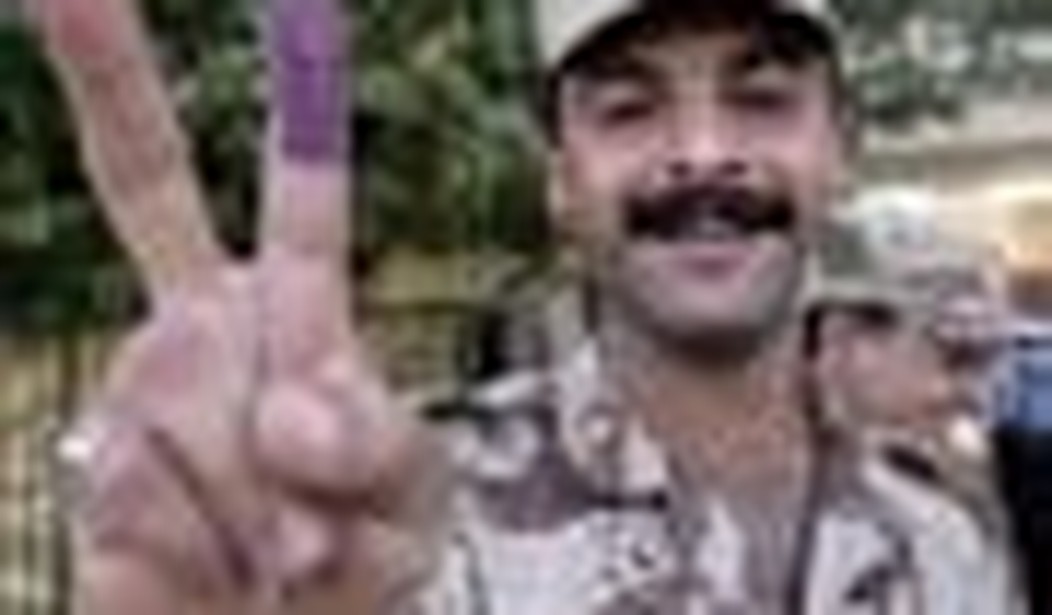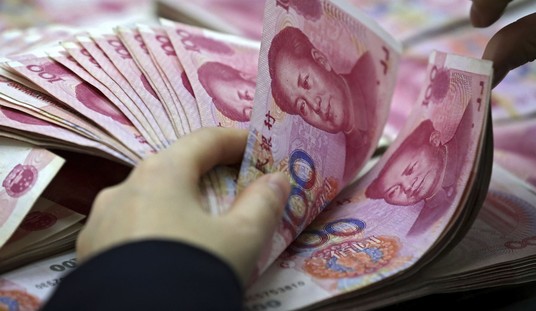The war on terror is largely a result of a civil war within Islam. The extremists use terrorism, oppress those who don’t agree with them, and establish states based on strict Sharia law. The moderates, who may disagree with U.S. foreign policy but stand for freedom and democratic principles while opposing terrorism, may not have as powerful of a voice, but they are decisively winning this conflict, making advances in almost every part of the Islamic world.
The Middle East is where the turnaround is the greatest. When the Iranian regime rigged the elections in favor of Mahmoud Ahmadinejad on June 12, the population began a peaceful uprising and today protests against Ayatollah Khamenei, the supreme leader, and chants calling for democracy and human rights are commonplace. The regime is today facing the greatest challenge to its very survival since its creation in 1979. This instability has already caused problems for terrorists relying upon Iranian support and when the regime one day inevitably falls, it will have positive consequences across the world.
In Iraq, the provincial elections of January 31, 2009, were a blow to sectarianism and those against separation of mosque and state. The groups who focused on issues like security and less on religion and sectarian identity benefited politically. The party of Prime Minister al-Maliki, who had made the decision of taking on the Iranian-backed militias of Muqtada al-Sadr, won in a landslide, even winning in Baghdad, Basra, and Najaf, strongholds of the Sadrists and his more religiously conservative rivals in the Islamic Supreme Council of Iraq. Gains were also made by the secular Shiite party of former Prime Minister Ayad Allawi, while the moderate Sunnis affiliated with the Awakening, the movement that sparked an uprising among Iraqis against the insurgents and al-Qaeda-linked terrorists, have become a significant political force.
On June 7, the March 14 coalition led by Saad al-Hariri defeated Hezbollah in Lebanon, taking 72 of the 128 seats, even though the terrorist group had allied with the Free Patriotic Party, a Maronite Christian party led by Michel Aoun. Al-Hariri’s victory could only have happened with a large amount of Muslim support.
On May 16, four women were elected to Kuwait’s parliament and the Islamists were handed a political defeat. The Islamic Constitutional Movement, a branch of the Muslim Brotherhood, and the Islamic Salafi Alliance lost four seats. They now only hold three of the 50 seats in parliament.
Polls in the region show a dramatic drop in support for terrorist organizations and key pillars of extremist doctrine. In Saudi Arabia, for example, nearly half of all Saudis had a favorable opinion of Osama bin Laden in a poll conducted only a few months after al-Qaeda bombed Riyadh in May 2003. In December 2007, only 10 percent of Saudis had a favorable view of al-Qaeda and 15 percent had a favorable view of bin Laden. Forty percent view the U.S. favorably and more Saudis view Hamas and Hezbollah unfavorably than favorably.
All across the Middle East there are signs of hope, such as election victories by moderates, louder calls for human rights and democratic principles and against extremism, and reforms instituted by governments to ease popular pressure. This encouraging trend is also taking place in Southeast Asia.
In Pakistan, the liberal Pakistan People’s Party came in first in the February 18, 2008, parliamentary elections, ahead of the Pakistan Muslim League led by Nawaz Sharif, who has called for establishing a “truly Islamic system” in the past. The extremists even lost in Northwest Frontier Province, their stronghold. Although the PPP had to craft an alliance with Sharif’s group to form the government, the election results showed the Pakistani population was more moderate than many had thought.
There are other positive signs coming from Pakistan. Eight celebrities wrote a hit song called “This Is Not Us,” decrying the extremists and terrorists who are acting in the name of Islam. They helped promote a petition, now signed by 62.8 million Pakistanis, including especially large numbers in the Northwest Frontier Province, saying that true Muslims do not support terrorism. Some moderate clerics have openly sided with the military during the offensive into the Swat Valley, with one even offering to send volunteers to help. The actions of the Taliban have caused a popular backlash, with protests erupting against them.
In Bangladesh, the moderate coalition won a landslide victory in the December 29, 2008, general election over the Islamist parties including Jamaat-e-Islami, winning 263 of 300 seats. In Afghanistan, only four percent of the population favors a return to Taliban rule. In Indonesia, the president’s secular party won the May elections with 21 percent of the vote, a threefold increase, and support for the Islamist parties has dropped 15 percent over five years. And in India, over 6,000 Muslim clerics denounced terrorism after the attacks on Mumbai. The authorities had trouble burying the terrorists who died in the attack because local cemeteries didn’t consider them Muslims for what they had done.
Moderate Muslims are also taking a strong stand in the West.
In Europe, the one-year-old country of Kosovo is an outpost for moderate Muslims. In the United Kingdom, former members of the radical Hizb ut-Tahrir group have founded the Quilliam Foundation, which they describe as a “counter-extremism think tank.” They are committed to democratic principles, even disagreeing with the United Kingdom’s refusal to allow Geert Wilders, the anti-Islam Dutch politician, to enter the country, challenging him to a debate instead.
A Muslim cleric named Dr. Taj Hargery is receiving intense pressure for his criticism of Wahhabism as well. He has described multiculturalism as “the biggest disaster to happen to Britain since World War II,” saying that “it has given the extremist mullahs the green light for radicalism and losing our faith.” He argues that Muslims must assimilate to British society and that “we can do so without losing our faith.”
In London, moderates confronted extremists who had protested a parade held for British soldiers returning from Iraq. Police had to intervene to keep the crowds apart. When asked about the clash, one of the moderate participants said, “We have been fighting these Muslim extremists for you. … The community decided to move them on because the police won’t.”
In Ireland, Imam Shaheed Satardien left his mosque, repulsed by their following of Sheikh Yusuf al-Qaradawi, a top Muslim Brotherhood theologian. He has started his own mosque, where he preaches against Wahhabism and extremism and teaches moderate Islamic beliefs, such as the belief that women should be seen and heard freely. He’s received numerous death threats as a result.
The United States is seeing moderate Muslim organizations rise up to compete with Muslim Brotherhood fronts like the Council on American-Islamic Relations, which has seen a dramatic decrease in support from the Muslim American community. The American Islamic Forum for Democracy, American Islamic Congress, Free Muslims Coalition, Islamic Supreme Council of America, and various groups and individuals dedicated to supporting democracy and human rights in overseas Islamic lands are becoming a force to be reckoned with for extremists. Even without the foreign funding enjoyed by more prominent Muslim organizations, these groups are making tremendous inroads.
Skeptics of this argument will point to Egypt and the Gaza Strip, where extremists have made gains due to elections. It must be noted that they did not win because of democracy, as the freedoms that enable moderates to have their voice heard and win a following were denied. In such a situation, the extremists offer the only alternative to the government.
Of course, this doesn’t mean that the war on terror is over. Somalia is falling to al-Qaeda affiliates and a terrorist offensive sponsored by Syria and Iran or a regional war could reverse many of these gains. The battle between moderates and extremists rages on in the West as well, as frightening percentages still express support for different elements of radical Islam. This is all true, but these victories are showing an unmistakable trend in favor of the moderates. I am in agreement with my friend John Loftus, who writes that “we may be witnessing the death throes of the fundamentalist terror states, and the birth of a renaissance of modernity in the Middle East.”









Join the conversation as a VIP Member